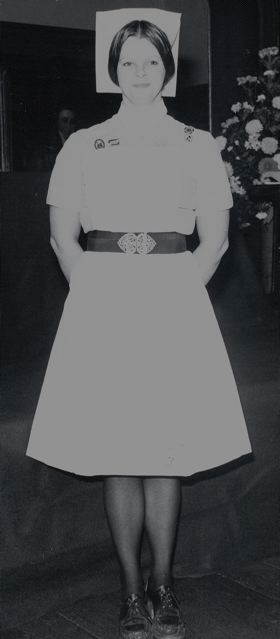 Abraham Lincoln
If given the truth, the people can be depended upon to meet any national crisis...
Abraham Lincoln
If given the truth, the people can be depended upon to meet any national crisis...
 Guildford news...
for Guildford people, brought to you by Guildford reporters - Guildford's own news service
Guildford news...
for Guildford people, brought to you by Guildford reporters - Guildford's own news service
Proposed Changes To Nurse Training – Anne Milton MP Gives Her View
Published on: 10 May, 2013
Updated on: 13 May, 2013

Anne Milton MP
By Victoria Lazarevic
Anne Milton, former nurse and Guildford’s MP, has given her view on proposed government changes to nurse training.
Under the proposals, student nurses will have to work on the ‘front-line’ as a health care assistant or support worker before commencement of their student nurse training. Jeremy Hunt, the Secretary of State for Health, said that this would be a year long pre-qualification for student nurses receiving funding for their degree.
The public inquiry into accepted reports of poor standards at Mid Staffordshire NHS Trust recommended: “a national entry-level requirement that student nurses spend a minimum period of time, at least three months, working on the direct care of patients”. Health Education England (HEE) have been asked to pilot and evaluate a trial before recommending how it should be taken forward.

Anne Milton, Nurse
Ms Milton, who originally trained as a nurse at St Bartholomew’s Hospital in London, said: “…people locally will support these changes to nurse training….
“A pilot is a good idea… the emphasis on nurse training has been on the academic side but nurses need to be trained in what the service wants [and this pilot would] tie the two together.”
She rejected suggestions that giving basic care is demeaning for nurses and said, based on her experience: “Being able to look after someone is a privilege, not demeaning. When someone is unwell, personal care such as washing somebody is intensely intimate and people get angry when it is not done well and that intimacy is not respected. It is about saying: ‘Nothing but the best will do’.”
As for the local Royal Surrey County Hospital she said: “They are never complacent, especially with an MP who is an ex nurse always nagging them!”
Anne Milton’s comments we’re reinforced by Louise Stead, Director of Nursing and Patient Experience at the Royal Surrey who said: “We are proud of our great team of nurses who are passionate about delivering the highest levels of care.
“Everyday they strive to look after patients’ from their most basic care needs to more complex care requirements. The delivery of basic care forms the basis of understanding the patient as an individual and gives an opportunity for discussions around patient worries and concerns. They endeavour to ensure that all patients are treated with dignity, empathy and are offered the support they need as part of their treatment.”
A patient governor at the Royal Surrey County Hospital, David Schuter, who has experience as a patient at the hospital said of the proposed changes: “Actually, I think it is a very good idea as that is how student nurses will gain insight into what they are letting themselves in for before they proceed onto their training proper.
“Nurses want to care but don’t always realise they’ll have to do menial things that aren’t always that nice, such as emptying bedpans, as well as just the trivial, but necessary, little tasks for patients. These are a major part of working life as a nurse as well as the academic and managerial side.
“[The time spent as an assistant] will help them understand and learn how to interact with patients from the very start of their training.”
But Mr Chuter had only praise for the nurses at the Royal Surrey: “I can’t fault the nurses here,” he said.
The Royal College of Nursing (RCN), the largest professional union of nursing staff in the world, said: “Despite some real reservations, we are committed to working with the Government to ensure [the] vision for a patient-centred NHS becomes a reality.”
A spokesperson from The Nursing & Midwifery Council (NMC) said: “As the NMC set the standards for nurse education they expect to be involved and will work with the government in any pilot they set up.”
The pilots will commence in September and run for twelve months. Between 150 and 200 prospective nurses will be selected to take part. Once completed, a decision will be made on the duration of the pre-student nurse training. It will be either three months, as recommended by the public inquiry, or a year, as recommended by the government.
Responses to Proposed Changes To Nurse Training – Anne Milton MP Gives Her View
Leave a Comment Cancel replyPlease see our comments policy. All comments are moderated and may take time to appear.

"Found any?" - "Nope, it all looks green to me!" (See Opinion: The Future is Congested, the Future is Grey)
www.abbotshospital.org/news/">





Recent Articles
- Latest Evidence in Sara Sharif Trial
- Ash’s New Road Bridge Is Named – and November 23rd Is Opening Day
- Class A in Underwear Leads to Jail Sentence
- Historical Almshouse Charity Celebrates Guildford in Bloom Victory
- Notice: Shalford Renewable Showcase – November 16
- Firework Fiesta: Guildford Lions Club Announces Extra Attractions
- Come and Meet the Flower Fairies at Watts Gallery
- Updated: Royal Mail Public Counter in Woodbridge Meadows to Close, Says Staff Member
- Letter: New Developments Should Benefit Local People
- Open Letter to Jeremy Hunt, MP: Ash’s Healthcare Concerns


Recent Comments
- Paul Spooner on Ash’s New Road Bridge Is Named – and November 23rd Is Opening Day
- Harry Eve on Opinion: The Future is Congested, the Future is Grey
- Nigel Keane on Letter: New Developments Should Benefit Local People
- Nathan Cassidy on Updated: Royal Mail Public Counter in Woodbridge Meadows to Close, Says Staff Member
- T Saunders on Opinion: The Future is Congested, the Future is Grey
- Jim Allen on Updated: Royal Mail Public Counter in Woodbridge Meadows to Close, Says Staff Member
Search in Site
Media Gallery
Dragon Interview: Local Artist Leaves Her Mark At One of England’s Most Historic Buildings
January 21, 2023 / No Comment / Read MoreDragon Interview: Lib Dem Planning Chair: ‘Current Policy Doesn’t Work for Local People’
January 19, 2023 / No Comment / Read MoreA3 Tunnel in Guildford ‘Necessary’ for New Homes, Says Guildford’s MP
January 10, 2023 / No Comment / Read More‘Madness’ for London Road Scheme to Go Ahead Against ‘Huge Opposition’, Says SCC Leader
January 6, 2023 / No Comment / Read MoreCouncillor’s Son Starts Campaign for More Consultation on North Street Plan
December 30, 2022 / No Comment / Read MoreCounty Council Climbs Down Over London Road Works – Further ‘Engagement’ Period Announced
December 14, 2022 / No Comment / Read MoreDragon Interview: GBC Reaction to the Government’s Expected Decision to Relax Housing Targets
December 7, 2022 / No Comment / Read MoreHow Can Our Town Centre Businesses Recover? Watch the Shop Front Debate
May 18, 2020 / No Comment / Read More







Ngaire Wadman
May 13, 2013 at 5:08 pm
I agree with Anne (lovely old photo, by the way!). Nursing has always been as much a vocation as a profession, and a vocation requires personal commitment and enthusiasm that embraces all aspects of the care, emptying bedpans as well as administering medicine and treatment. If a person views nursing as ‘just a job’, they’ll never be fit for it. Looking after sick, demanding, dependent people is hard graft and the rewards are far more than just financial for the right people.
Spending a year as an assistant, hopefully without being treated as a ‘tweenie’ by qualified staff, will be a much-needed weeding-out stage for nursing. How young will the assistants be? School leavers? Why not?
I spent a year working in a hospital as a junior volunteer and, although my tasks were far lighter than the proposed work of an assistant, I certainly learned what nursing is all about and gained enormous respect for those willing to make it their life’s work.
Caroline Allison
May 13, 2013 at 8:49 pm
As a nurse for 25 years, I agree nursing is vocational. How ill prepared I was when I went into the profession and what an adjustment is was!
Nursing is a way of life, and something to which you give a huge part of yourself. However, I am not sure that a full year of pre-training experience is the answer. I think that a year of pre-course experience is too long and will put would be nurses off the training, which is already 3 years long.
Surely it would be better to ensure that the training course covers all that nurses need to start with. Discussion with a second year student nurse this week informed me that she had spent most of her two years on community placements, rather than acute hospital care. Is this not part of the problem?